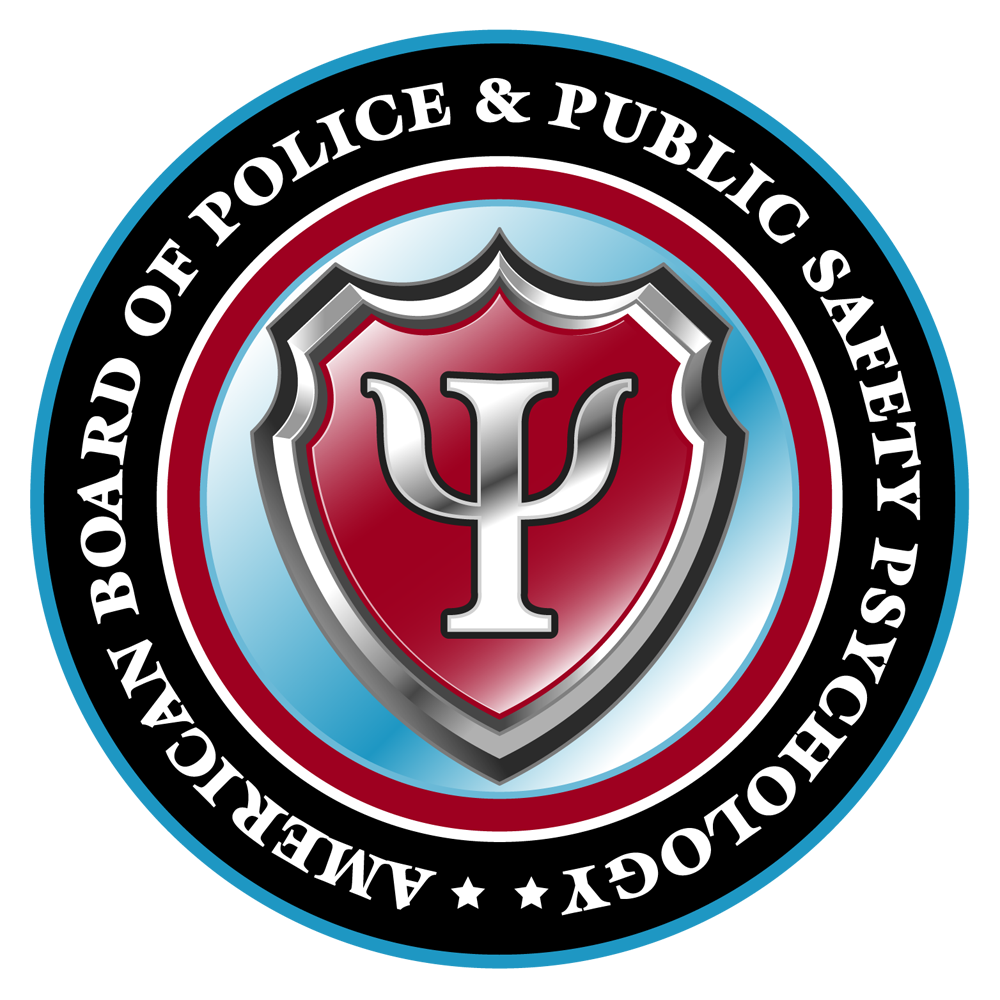10 hours | 10 CEs
This on-demand professional training program on Introduction to Police & Public Safety Psychology is presented by Philip Trompetter, Ph.D., ABPP, & Jaime Brower, PsyD., in partnership with The American Board of Police and Public Safety Psychology (ABPPSP).
This program is California POST CPE approved for 4 CE hours.
This program provides core knowledge, with a sample of applications, of the police and public psychology specialty. Police and public safety psychology (PPSP) is concerned with assisting law enforcement and other public safety personnel and agencies in carrying out their missions and societal functions with effectiveness, safety, health, and conformity to laws and ethics. It consists of applying the science and profession of psychology in four primary domains of practice: Assessment, Intervention, Operational Support, and Organizational consultation. It begins with a history of the specialty, followed by descriptions of core proficiencies.
Next, the program includes examples of PPSP practices such as crisis/hostage negotiations, employer-mandated psychological evaluations, interventions following officer-involved shootings, and other activities. Notably, the program promotes the cultural competence concepts necessary for a psychologist to work effectively with first responders.

Intended Audience
This on-demand professional training program is intended for mental health and other allied professionals

Experience Level
This on-demand professional training program is appropriate for beginner, intermediate, and advanced level clinicians.

CE / CPD Credit
APA, ASWB, CPA, NBCC Click here for state and other regional board approvals.
Learning Objectives
Upon completion of this program you will be able to:

Describe the core domains of police and public safety psychology

Describe the police cultural milieu

Describe how police are trained to respond to threats and describe at least three misconceptions about police use of deadly force

Describe the differences between a pre-employment psychological screening and a fitness-for-duty evaluation of a law enforcement officer

Describe three examples of police training and consultation topics

Describe the historical development of police and public safety psychology as a professional specialty.

Describe the four primary domains of practice in police and public safety psychology: assessment, intervention, operational support, and organizational support.

Describe the role of intervention services in supporting law enforcement personnel’s psychological well-being.

Describe operational support functions that police psychologists provide during critical incidents and high-stress operations.

Describe organizational support strategies aimed at promoting resilience and reducing stress in law enforcement agencies.

Curriculum
1. Introduction
2. A Brief History of Police Psychology
3. Domains of Police Psychology
4. Fitness for Duty Evaluations
5. Intervention
6. Operational Support
Develop a Specialty Area of Practice
Transforming mental health professionals into experts
Expert Instructors
Professional training developed and delivered by the field's leading experts

CE Credit
Earn CE credit for meaningful professional training that will elevate your practice
Convenience & Flexibility
Learn at your own pace, from wherever you might be!
Program Partner
American Board of Police and Public Safety Psychology (ABPPSP)
We are proud to partner with The American Board of Police and Public Safety Psychology (ABPPSP) for this training. ABPPSP became a fully affiliated specialty board of the American Board of Professional Psychology (ABPP) on October 21, 2011. Police and Public Safety Psychology is concerned with assisting law enforcement and other public safety personnel and agencies in carrying out their missions and societal functions with optimal effectiveness, safety, health, and conformity to laws and ethics. It consists of the application of the science and profession of psychology in four primary domains of practice: assessment, clinical intervention, operational support, and organizational consultation.

CE Sponsorship Information
Palo Alto University, Continuing and Professional Studies (CONCEPT) is approved by the American Psychological Association to sponsor continuing education for psychologists. Palo Alto University, Continuing and Professional Studies (CONCEPT) maintains responsibility for this program and its content. Palo Alto University, Continuing and Professional Studies (CONCEPT) is approved by the Canadian Psychological Association to offer continuing education for psychologists. Palo Alto University, Continuing and Professional Studies (CONCEPT), SW CPE is recognized by the New York State Education Department’s State Board for Social Work as an approved provider of continuing education for licensed social workers #SW-0356 and the New York State Education Department’s State Board for Mental Health Practitioners as an approved provider of continuing education for licensed mental health counselors. #MHC-0073. Palo Alto University, Continuing and Professional Studies (CONCEPT) has been approved by NBCC as an Approved Continuing Education Provider, ACEP No. 6811. Programs that do not qualify for NBCC credit are clearly identified. CONCEPT Professional Training, #1480, is approved to offer social work continuing education by the Association of Social Work Boards (ASWB) Approved Continuing Education (ACE) program. Organizations, not individual courses, are approved as ACE providers. State and provincial regulatory boards have the final authority to determine whether an individual course may be accepted for continuing education credit. CONCEPT Professional Training maintains responsibility for this course. ACE provider approval period: 11/22/23-11/22/26. Social workers completing this course receive (clinical or social work ethics) continuing education credits.



